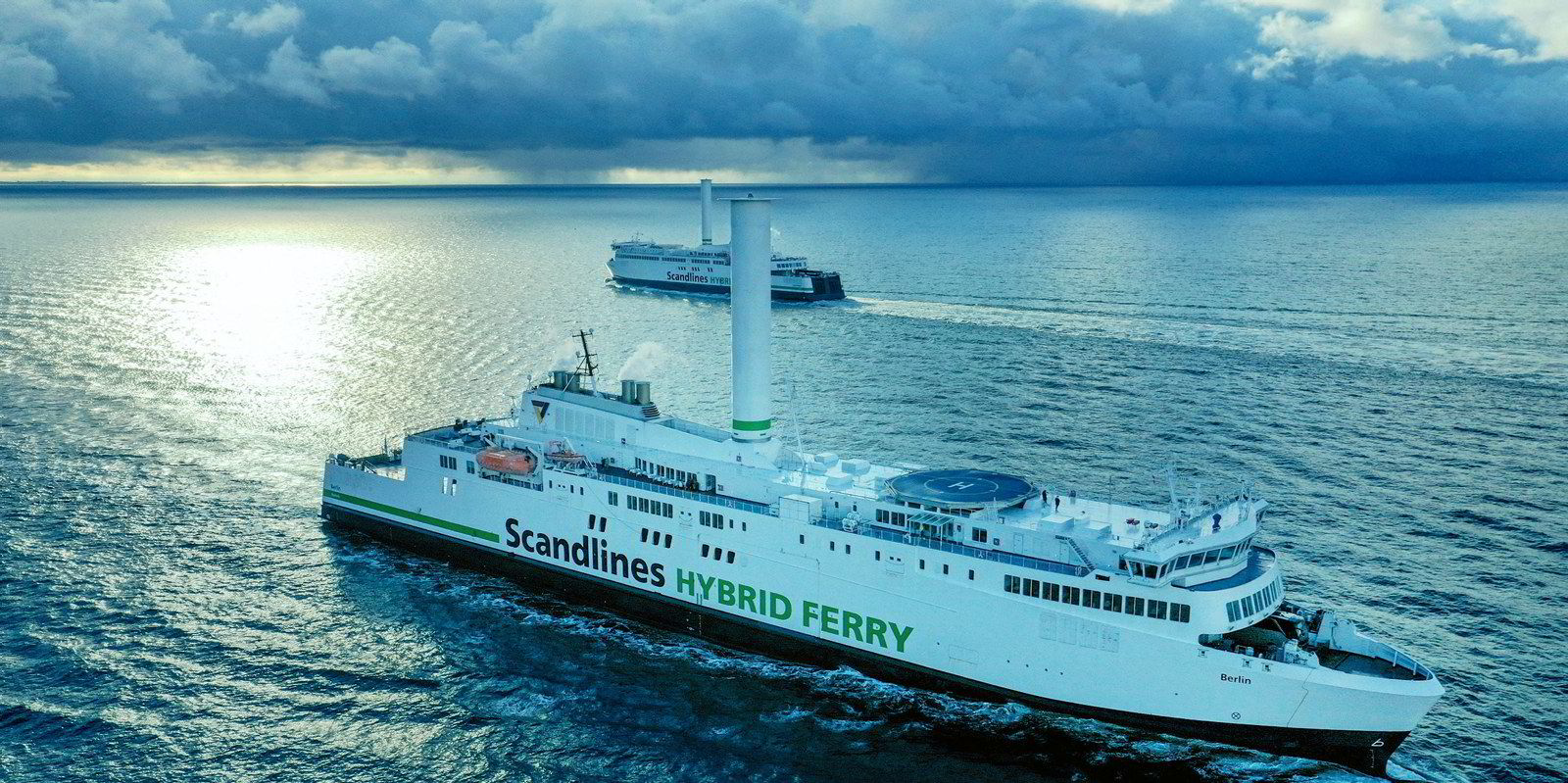The first phase of a simulation project to evaluate the fuel savings potential of combining rotor sail technology and voyage optimisation has shown up to 28% average emissions reductions for a ship design by Sumitomo Heavy Industries Marine & Engineering (SHI-ME).
The project evaluated Napa voyage optimisation and a Norsepower rotor sail on an Atlantic route between New York and Amsterdam to find the average 28% reduction in CO2 emissions. An estimated 12% of those savings would come from the optimisation software system, the three partners said.
Actual performance data for the Norsepower rotor using nowcast weather data from 2022 for routing options was also used to simulate the performance of tankers on six main trading routes. The effort found an average CO2 reduction of 19% across all six routes studied when using the Napa system alongside the rotor sails.
Insights from the first phase of the simulation from December 2022 to March 2023 were also used to predict vessel performance at the design stage, testing how the ship could handle varying sea and weather conditions.
Phase two from May 2023 onwards aims to use fleet data to build on and enhance the operational performance recorded in the first stage.
The project is part of SHI-ME’s plan to develop a new proof of concept for wind-assisted ships that will be equipped with Norsepower rotor sails.
Its findings will help strengthen the business case for investing in wind-assist technology at a time when the industry is under increasing pressure to decarbonise, the companies said.
Pekka Pakkanen, executive vice president of Napa Shipping Solutions, said the project showed the significant potential for combining wind propulsion with voyage optimisation
“Our findings are promising and can help bring much-needed clarity to help the industry meet its sustainability goals,” Pakkanen said.
Sumitomo Heavy Industries Marine & Engineering senior engineer Yuji Arai added that the results “exceed customers’ expectations”.
Jukka Kuuskoski, chief sales officer at Norsepower, said that at a time of growing international regulatory and public pressure to save fuel and reduce the industry’s environmental impact, the performance data on the benefits of adopting clean technologies can give the industry confidence to invest in decarbonisation.





